
poetry in action features work by poets from around the world, translated into English.
It has three rallying cries:
Poets of the world, unite and take over!
Resist the oppressive constraints of good, publishable poetry established by mainstream literary venues!
Only poetry in translation, all the time!
Coming at you on the 20th of each month.
encounter 1
the war where I don’t remember
between the rush hour you
umbrellaed for me and I arrived
with the train in underwear
angels from the crowd swept me
into your hair & left us there
stomping cobblestones my hands
gloved in yours
we unraveled our shoulders
all the way
to the mauve 75º room
rain wounded windows
open just a crack the kitchen
the breathing pasta water
harbored our unpublishable souls
encounter 5
覚 え ざ る
戦争、 帰 宅
ラッシュ の
中 に 君 は
傘 を さ し て 待 つ
下 着 の 僕 は
電 車 と
着 く
人 群 の 霊
僕 を 君 に
届 け る
栗 石 を
ど し ど し 歩 く と
僕 の 手 を
君の手袋、
かたとほぐす
75度の部屋まで
窓をずっと
雨がしとしと
きずつく
少しだけ開く
台所の
約束
ためいきしてる
パスタワーター
あらわせざる
霊魂ふくむ
今もそう
encounter 11
unrecollectible
war evening
rush hour
you, amidst
waiting in umbrellas
and I, in underwear
the train arrives
from the crowd of departed souls
I reach you
free stomping
on the cobblestones
we go
my hand is your
glove, shoulders
unravel
until the 75º room
always
the windows
hurt by rain
open a crack
the kitchen
promises
the sighing
pasta water
unpublishable
souls held in the mouth
even now
000000000new year 2
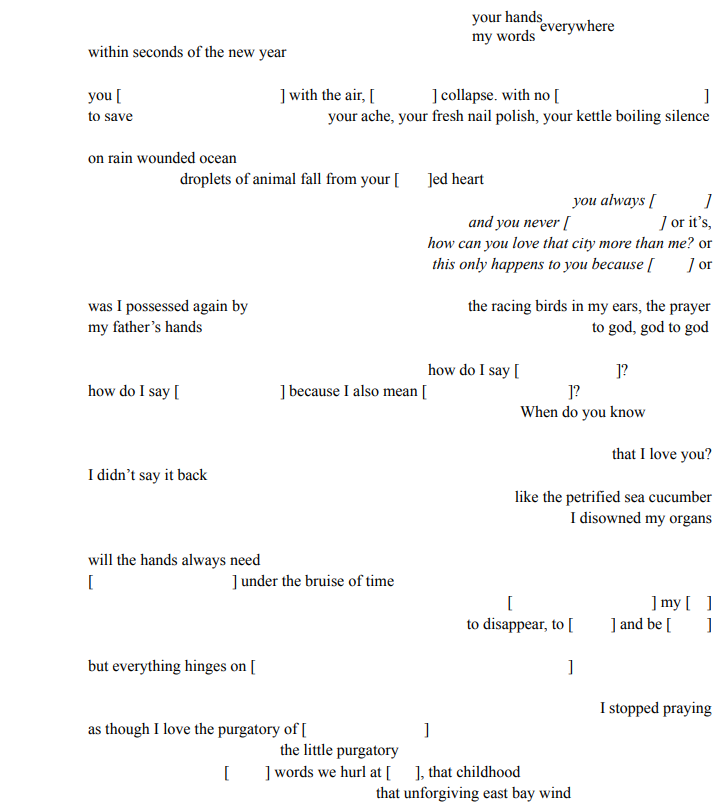
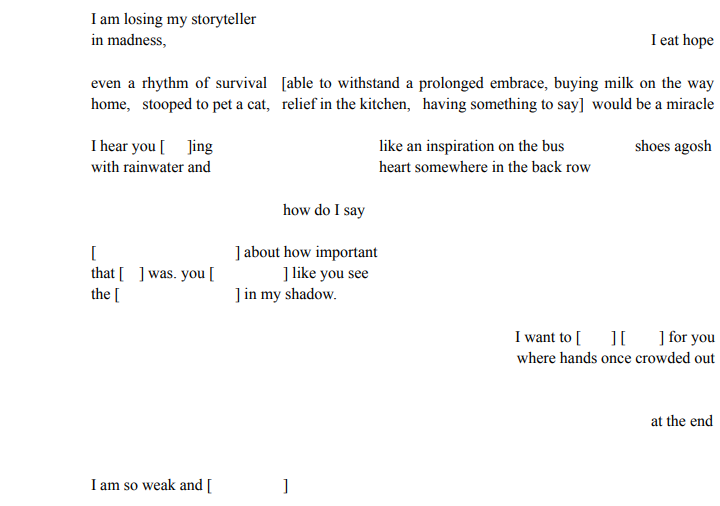
000000000things I want to say
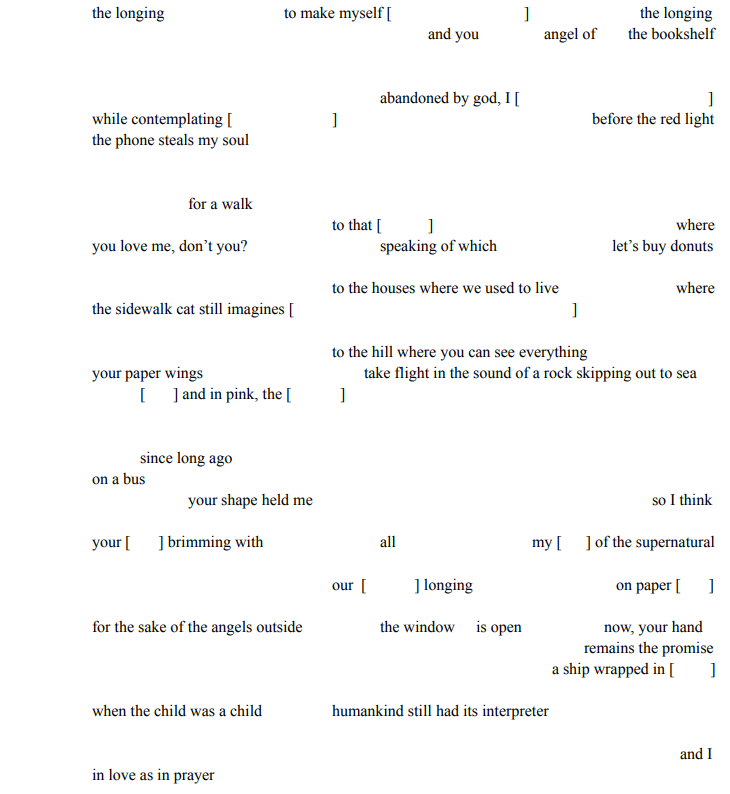
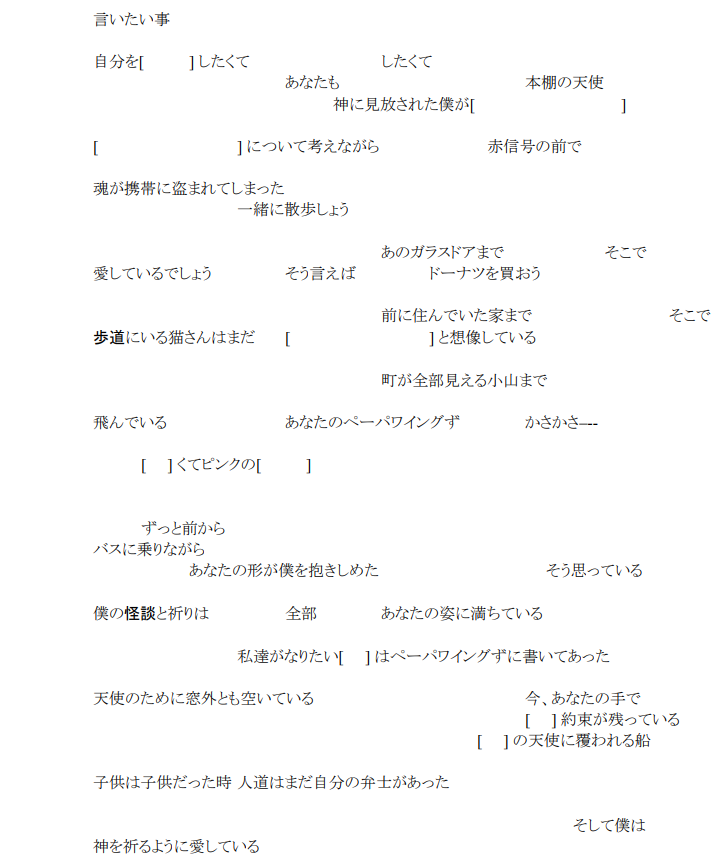
000000000vow
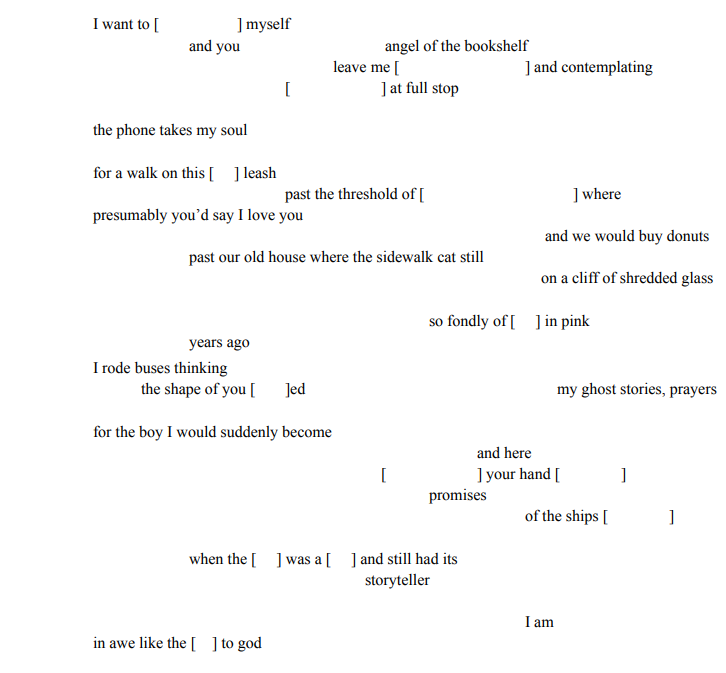
Transing Translation is an experiment in trans translation, a birthing across and in between linguistic spaces. Translations and trans bodies are treated similarly, especially when it comes to questions of visibility, acceptance, and passing. While transness is a resistance methodology to the norms of gender, translation can function as a mode of resistance to linguistic structures and cultural barriers that proliferate oppression. Through applying trans theory to translation, I posit a practice of translation that creates a space beyond the discipling force of linguistic and cultural barriers, and uses the power of translation as a liminal text—between original and recreation—to decolonize, destabilize dichotomies, and create new meaning.
In each of their iterations, these poems serve as a palimpsest of each other, revealing and shielding multiplicity of meaning. This process de-fetishizes the notion of an original work, celebrating instead what is found through dancing along the edges of linguistic borders. This functions as a transing, whereby the emphasis placed on a singular original bearing the authority of meaning, is parallel to the authority placed in gender assigned at birth. I destabilize author/translator and writer/ reader binaries through brackets, which invoke a realm beyond language and invite the reader to participate in the creation of meaning.
Naseem Alavi is an Iranian poet, translator, and maker born and raised in Oakland. They are a recent graduate from Kenyon College, where they completed an honors thesis on trans theory and translation practice as a decolonial strategy and creative methodology. Currently, they are a teaching assistant at Chapter 510 in Oakland. When they aren’t writing, they can be found making puppets.